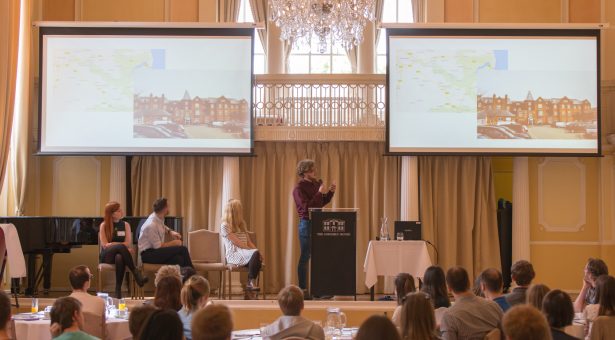Michael gains a variety of skills during his internship with CEFAS

Michael gains a variety of skills during his internship with CEFAS
Cefas is an applied marine science centre and agency of Defra, collaborating with cross-government, multi-agency bodies that pool scientific resources and knowledge to enable better decision making in the marine and freshwater environment. They were looking for an Intern with a careful methodological approach, attention to detail and scientific integrity to undertake two projects developing accessibility and usability of two of their long-term datasets. When Michael Macey, a PhD student in Environmental Microbiology, found this opportunity he felt he had the skills Cefas required and could in turn gain experience of working in a government agency and see the downstream application of science on policy.
Michael was keen to develop his skills in science communication, by working in a different area, in a different environment and with a different audience. He also wanted to expand his scientific ability outside of laboratory based research. His 12 week PIPS Internship, carried out from September to December 2014, provided him with the opportunity to do this. Michael’s duties included working with legacy documents and archived files relating to a Cefas database to look for valuable information, researching changes which could be made to the database and making recommendations to improve the range and accessibility of the data. He also undertook preliminary analyses of the data and recommended a new data management system.
Michael felt he made a valuable contribution during his time at Cefas, finding useful data to improve their databases as well as improving database usability. The internship also helped Michael develop important skills; “My knowledge of the statistical computer language and related file analysis of R has been greatly improved from my time at Cefas, along with my ability to use and gain data from other computer programs”. Michael also learnt the importance of proper data archiving and improved his time management and communication skills. Whilst working with sensitive data Michael was able to understand some of the aspects that are involved in working as part of a government agency and as part of an international project. Furthermore, Michael reflects that “working on these two databases has improved my ability to accept responsibility, as both of these databases will have application in future publications, and therefore my work had to be of a sufficiently high quality”.
When asked what guidance he has for future PIPS students Michael advises “keep a journal or lab book for the activities completed every day in order to stay on top of the work being assigned to you. The work that we produce as DTP students needs to be supplied to the host at the end of the internship in a useable format”.
